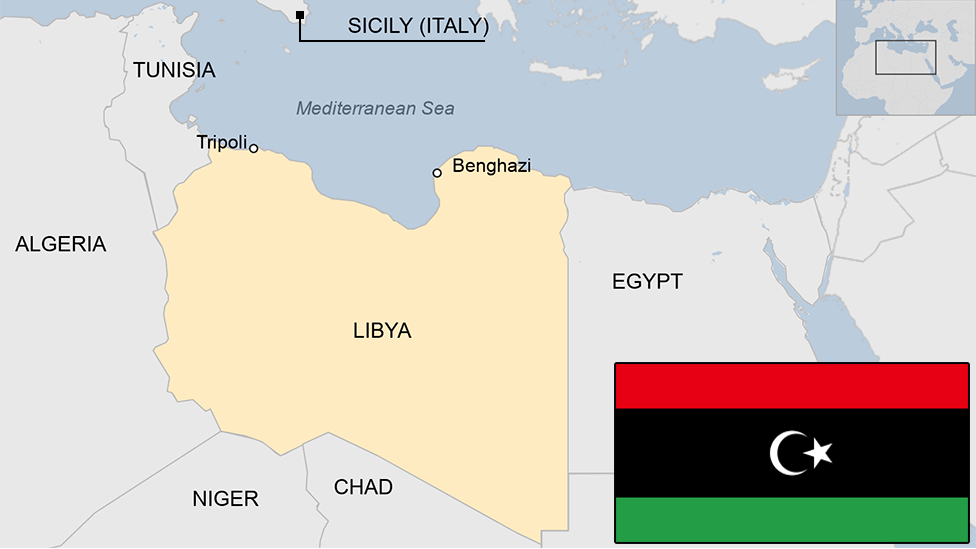Libya attack: US diplomats have to work around the danger
- Published
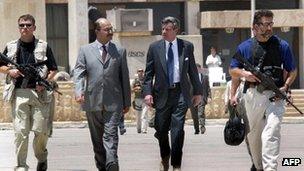
Bremer, centre with open jacket, travelled all over Iraq - but always with heavily armed guards
An envoy's life may conjure up images of plum postings amid bougainvillea vines on sunny embassy row. But the deaths of four US officials in Libya illustrate the dangers of the job, former US diplomats tell the BBC.
John Limbert knows a thing or two about diplomatic security. He was one of 52 Americans held hostage for more than a year when Iranian radicals stormed the US embassy in Tehran in 1979.
But more than two decades later, when he served with the US mission in Iraq following the US invasion, he made a point of going out - in an open Humvee, with no flak jacket and minimal weapons.
"The security details, the armoured vehicles - these kinds of things really cramp your style," he says.
"You can't just hop in your own car and drive off to a dinner somewhere. You come up with follow cars and chase cars and guys toting guns around. And then you say 'I'm from the US government and I'm here to help?'"
'Can't get out'
Following the deaths in Benghazi of US Ambassador J Christopher Stevens and three other US foreign service officers, the US is certain to rethink its security procedures there and elsewhere.
But veteran US diplomats caution against tightening security too much. Danger is just part of the job representing the US abroad, and a heavy security retinue and an embassy built like a fortress make the work harder.
"If we can't get out, talk to people, travel around, understand the reality of the society and the country where we're assigned, then we can't do our job," says Mr Limbert, who later served as US ambassador to Mauritania.
"If you sit behind the walls and the barbed wire and the moat, that affects what you know and it affects your usefulness," he says.
Most diplomats do not travel with a large security detail, Mr Limbert says. And as a general rule, diplomats do not carry weapons.
Diplomats must think creatively, have specific, high-quality intelligence, and react to each security threat on its own terms, says Ronald Neumann, a veteran US diplomat who served as ambassador in Algeria, Afghanistan and Bahrain.
No pizza run
"When I was ambassador in Algeria we had a blanket death threat, and that minimised our going out somewhat," he says. So political contacts came to the embassy, he says.
"We probably knew more about Algeria than in the years before when we could move about freely," he says.
At another point, US diplomats held meetings with Algerian officials at the Spanish embassy, says Mr Neumann.
In Iraq, Mr Neumann held meetings with Iraqi officials in hotels, to spare the Iraqis having to travel to the Green Zone and risk being marked as collaborators.
Of course, people who join the foreign service know what they're in for, says Paul Bremer, former head of the US Coalition Provisional Authority, which governed Iraq after the 2003 invasion.
"I don't think American diplomats are surprised or intimidated by the fact that they have to serve in difficult places," he says.
"I had full-time security protection when I was ambassador to the Netherlands 25 years ago. I couldn't even go out for a pizza with my kids unless I arranged it ahead of time.
"It's constraining and you still have a job to do, and people who join the diplomatic service understand it's dangerous."
When diplomats who are curious about the world and love to travel are confined in tight quarters, unable to move about freely, and forced to have meetings among themselves, the job is frustrating.
But even with personal security threat, it can have its rewards.
"I served 10 years in Rome, and it was darn comfortable," says Daniel Serwer, a veteran diplomat and former deputy chief of mission and charge d'affaires in Italy, "even if I was on an Iraqi hit list for part of that time."
- Published13 September 2012
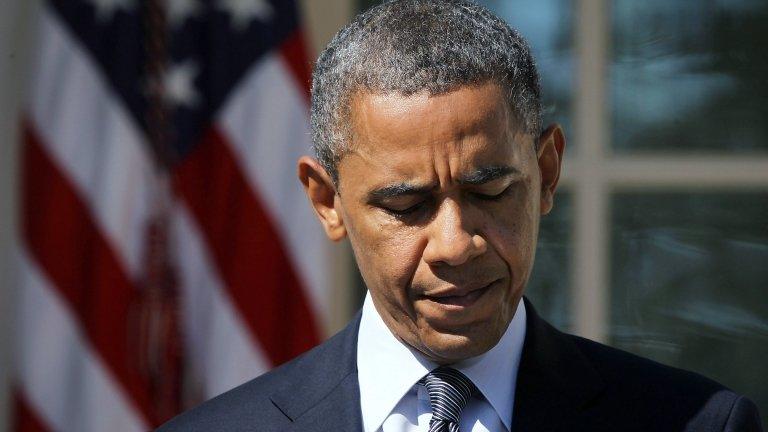
- Published13 September 2012
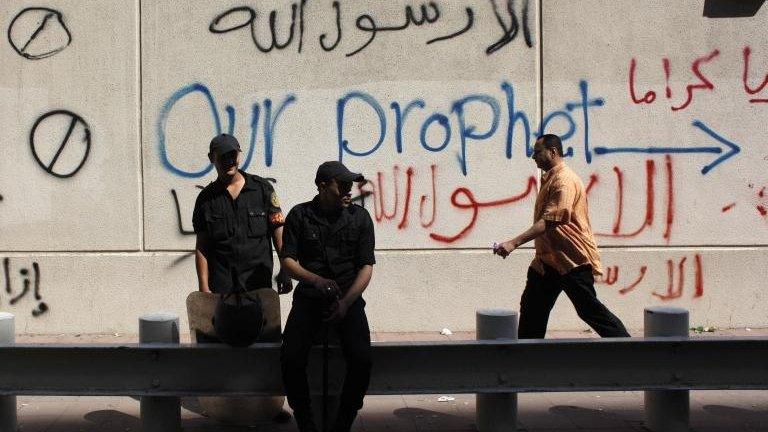
- Published12 September 2012
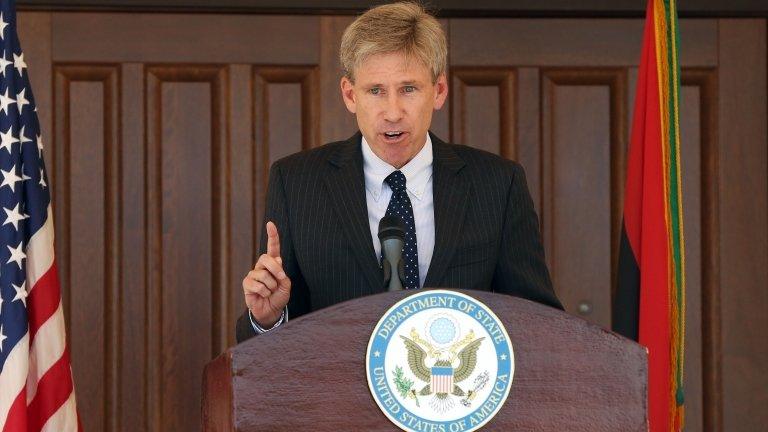
- Published12 September 2012
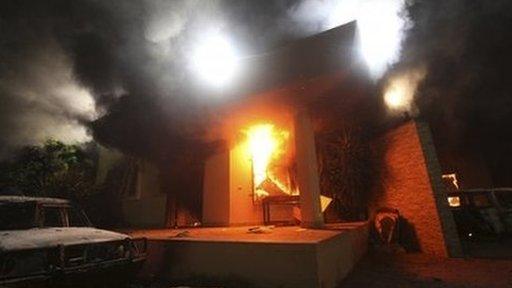
- Published12 September 2012
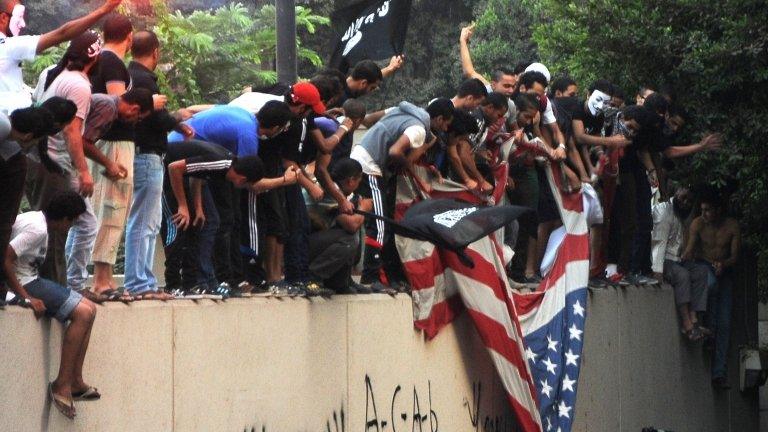
- Published11 September 2012
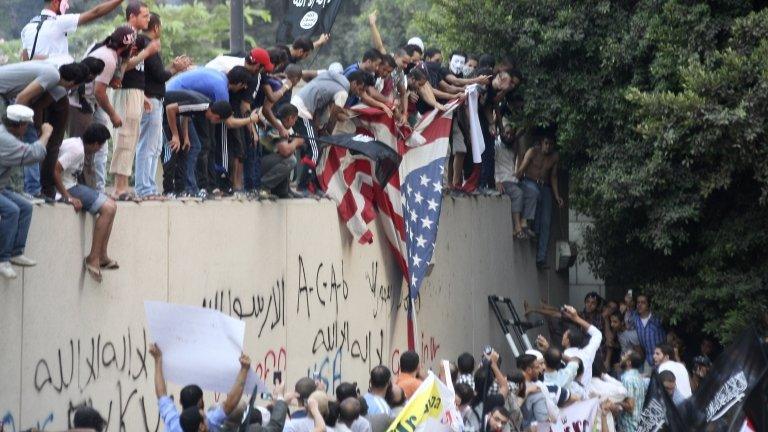
- Published13 September 2023
